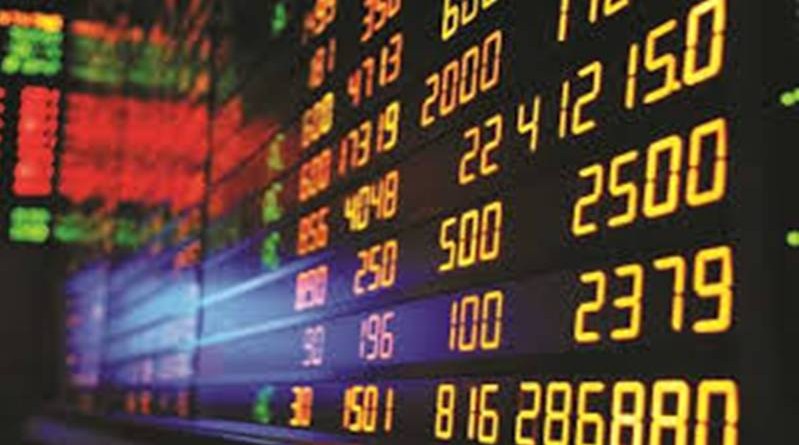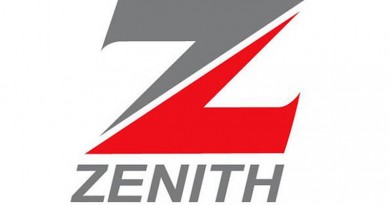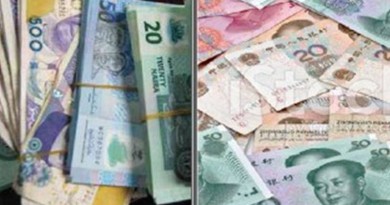Equities on NSE upbeat with N602b gains amid global lull
After rallying N7.76 trillion in net capital gains in two successive years, Nigerian equities are set for their third year with net capital gains of N602.02 billion at the weekend, bucking a generally negative opening trend in the global stock markets.
Benchmark indices at the stock market at the weekend showed average return of 2.66 per cent for the four-day opening trading week for the year, equivalent to net capital gains of N602.02 billion. The rally was driven by upsurge in open market orders for large and mid-cap stocks as companies begin preparations to release their audited reports and dividends for the 2021 business year.
The benchmark index for the Nigerian stock market, the All Share Index (ASI) of the Nigerian Exchange (NGX) closed weekend at 43,854.42 points as against 42,716.44 points recorded at the beginning of the week. The ASI is a value-based common index that tracks all share prices at the NGX. It is regarded as the Nigerian sovereign equities index, a broad measure of the stock market.
Most analysts at the weekend said there were strong possibilities that share prices would continue to rise in the meantime citing the onset of the earnings season and increasing attractiveness of Nigerian equities to global investors.
Analysts at Afrinvest Securities said they expected “the positive performance to be sustained as more investors take position ahead of the dividend season”.
“In the new week, we expect the equities market to remain upbeat as investors continue to position in readiness for dividend distributions in the first quarter of 2022,” investment analysts at Cowry Asset Management stated.
Analysts at Cordros Capital also supported a bullish outlook for Nigerian equities.
“In the near term, we believe positioning for 2021 full year dividends will continue to support buying activities in the market even as institutional investors continue to search for clues on the direction of yields in the fixed income market.
“However, we advise investors to take positions in only fundamentally justified stocks as the weak macro environment remains a significant headwind for corporate earnings,” Cordros Capital stated.The upwardly performance of the Nigerian stocks was contrary to the general decline at the global stock market. From America to Europe, Asia and Middle East, global stocks closed the first trading week of 2022 negative. In United States, the Dow Jones Industrial Average (DJIA) dropped by 0.3 per cent while the S & P 500 Index depreciated by 1.5 per cent. Europe’s broad index, STOXX Europe declined by 0.2 per cent. Japan’s Nikkei 225 Index dropped by 1.1 per cent while China’s SSE Index dipped by 1.7 per cent. The MSCI EM, which tracks global emerging markets dropped by 1.2 per cent while the MSCI FM which tracks frontier markets posted average negative return of -0.9 per cent. However, United Kingdom’s FTSE 100 Index recorded average positive return of 0.8 per cent.
Aggregate market value of quoted companies at the NGX rose by 5.97 per cent or N1.33 trillion to close weekend at N23.628 trillion as against the year’s opening value of N22.297 trillion. The difference between the ASI and market value growth rates was due to the listing of BUA Foods Plc during the week and the delisting of Studio Press Nigeria Plc and Union Diagnostic and Clinical Services Plc. A total of 18 billion ordinary shares of 50 kobo each of BUA Foods were listed at N40 per share, adding N720 billion to market capitalisation.
Total turnover at the NGX stood 2.03 billion shares worth N59.01 billion in 15,750 deals compared with a total of 995.36 million shares valued at N13.21 billion traded in 10,264 deals two weeks ago.
Newly listed BUA Foods lifted the consumer goods sector atop activity chart with 1.255 billion shares valued at N 51.973 billion in 2,581 deals; thus contributing 61.90 per cent and 88.07 per cent to the total equity turnover volume and value. The financial services sector followed with 537.96 million shares worth N4.627 billion in 8,015 deals while information and communication technology (ICT) sector placed third with a turnover of 76.906 million shares worth N704.346 million in 933 deals.
The three most active stocks were BUA Foods Plc, Wema Bank Plc, and Transnational Corporation of Nigeria Plc. They accounted for 1.349 billion shares worth N51.253 billion in 1,120 deals, contributing 67 per cent and 86.85 per cent to the total equity turnover volume and value respectively.
There were 40 gainers against 31 losers last week as against 37 gainers and 21 losers recorded in the previous week. Academy Press led the gainers with a gain of 20 per cent to close at 60 kobo per share. Cornerstone Insurance and Meyer Paints followed with a gain of 19.57 per cent each to close at 55 kobo each while Wema Bank rose by 18.06 per cent to close at 85 kobo per share.
On the negative side, Sunu Assurances led the decliners with a loss of 17.78 per cent to close at 37 kobo.Consolidated Hallmark Insurance dropped by 16.46 per cent to close at 66 kobo while Sovereign Trust Insurance declined by 13.33 per cent to close at 26 kobo per share.
Nigerian equities had over the past 24 months posted two-year average return of 56.1 per cent, equivalent to net capital gains of N7.76 trillion over the past two years.
Amid the restrictions and global uncertainties created by the COVID-19, the Nigerian stock market had built up a two-year successive rally, driven largely by domestic investments and recent renewal in foreign portfolio investments (FPIs).
The ASI closed 2021 with average return of 6.07 per cent, equivalent to net capital gains of N1.278 trillion. The Nigerian market had in the throes of the outbreak of COVID-19 pandemic in 2020 recorded average return of 50.03 per cent, representing net capital gains of N6.483 trillion.
Most market pundits have predicted continued rally at the stock market, despite emerging political risks.
President, Chartered Institute of Stockbrokers (CIS), Mr Olatunde Amolegbe, said two years of positive returns show that the market is reflecting its function as the barometer for the economy.
“We also expect the positive movement for the first half of 2022 on the back of good corporate performance, implementation of some part of the Petroleum Industry Act (PIA) and intense focus on infrastructural development and resultant increased capital raising by government and corporate entities,” Amolegbe said.
According to him, the implementation of the PIA has potential to raise government revenue, which may elicit a positive response from the market while infrastructural development would likely boost market activity.
“These, however, depend on stable macroeconomic policy, increased security and stable polity,” Amolegbe, who doubles as Managing Director of Arthur Steven Asset Management Limited said.
Managing Director, APT Securities and Funds, Mallam Kasimu Garba Kurfi also said the market would remain positive in the year, although the second half would be determined by the politics of succession by the largest political parties.
“We expect the bullish rally to continue in first and second quarters but the continuity to the third and fourth quarters depends on the outcome of the primary election of the APC and PDP if they are able to succeed in electing the right candidates for the presidency. Acceptability will lead to bullish rally throughout the year, otherwise, the market may suffer a reversal,” Kurfi said.
Group Head, Research, GTI Capital Group, Mr. Emmanuel Onoja, said there was strong possibility of the market running through a third positive year.
“It’s most likely we see a third year of positive return given the potential liquidity buildup next year as a result of increased borrowing, election spending and falling yields,” Onoja said.




